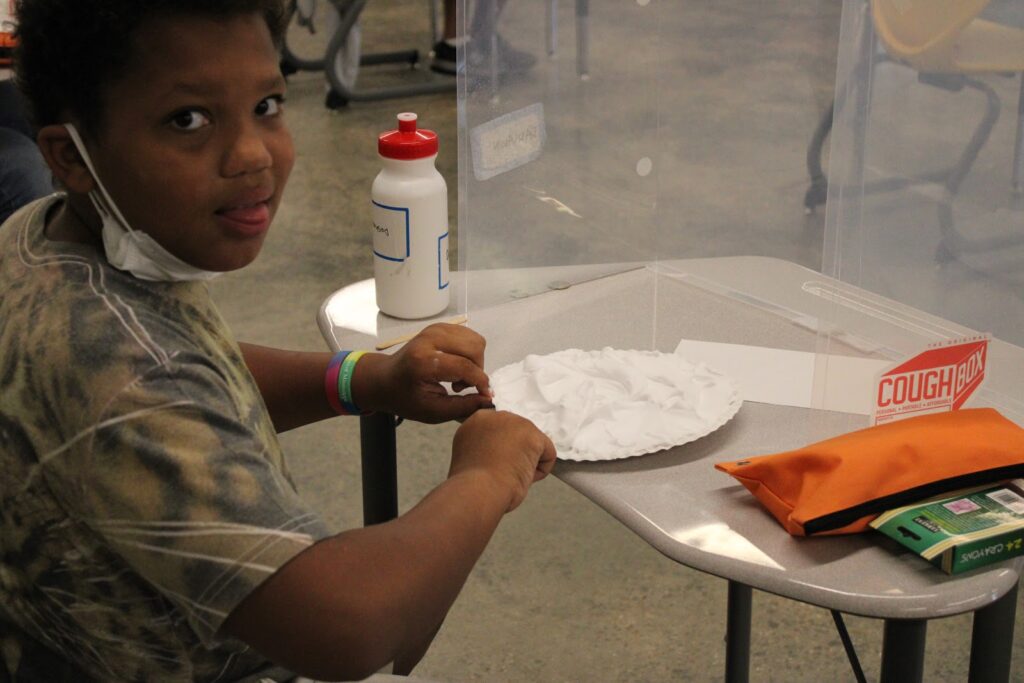
The Power of an Afternoon
At Operation Shoestring, an afternoon is anything but ordinary. It’s an opportunity to build connections, nourish young minds, and create affirming and extraordinary experiences.
On any given day, students could be out on a driving safari at the McClain Lodge, playing in a park, or enjoying the classrooms in our renovated building. This summer, we’ve designed a schedule that reassures, reconnects, and reinvigorates our campers after a difficult year. To do that, we’re using research-backed methods like art, role-playing, and project-based learning to help our children heal and thrive.
Our camp entitled Reconnection Summer is based on the power of relationships. Our students love their teachers at our camp, and often have had them as their camp counselors and educators for multiple years in our afterschool programs and in their elementary school in the Jackson Public School District as well. These teachers make them feel affirmed, heard, and seen, which makes a huge difference when it comes to learning recovery.
This week, 3rd grader D’Asia was initially struggling to understand her assignment on symmetry and sides of shapes. Her teacher, Ms. Smith, pulled up a chair next to her and took out a piece of paper. She then recreated the word problem in three dimensions, and built D’Asia a square to look at and examine hands on. This type of inventive problem solving is something that we prize at Operation Shoestring, and we know our campers love it too. After spending a few moments with the paper model, D’Asia remarked that now “it wasn’t that hard” for her, and that she “really liked math.”
In Ms. Smith’s afternoon classes later that day, her fourth and fifth graders typically spend the first half of the week absorbed into art projects or diving into specific STEM topics. This week, one of the activities was exploring how to blend colors in a marble painting project! Under Ms. Smith’s watchful eyes and gentle assistance, the children in her classroom solved how to make their “canvases” of shaving cream into the shapes they wanted, and worked with each other to uncover how the food coloring was impacted by different painting techniques. Finally, they would transfer the shaving cream and food coloring onto a piece of paper and make a print of their artwork. Fourth grader Deshaun was especially excited to experiment with the way adding and subtracting the amount of shaving cream impacted the overall effect of his painting. As Ms. Smith’s class consulted with and helped each other, they learned far more than how to make psychedelic prints with household materials. They worked on essential 21st century skills like collaboration and creative problem solving. When kids like Deshaun learn how to uncover solutions alongside of his peers, he’s laying the foundation for future professional and personal success. He’s practicing how to give feedback to others. He’s benefiting from the therapeutic nature of art, and building a curiosity for chemical reactions. Deshaun finished the session wondering why the food coloring did exactly what it did within the suspension of shaving cream. Maybe because of this and other formative life experiences, Deshaun will be a chemist, a physicist, or the next great experimental artist. These afternoons at Operation Shoestring’s summer camp only last a few hours, but the impacts could last a lifetime.
To find out more about how you can support our summer camp experience, you can go to operationshoestring.org/support.


